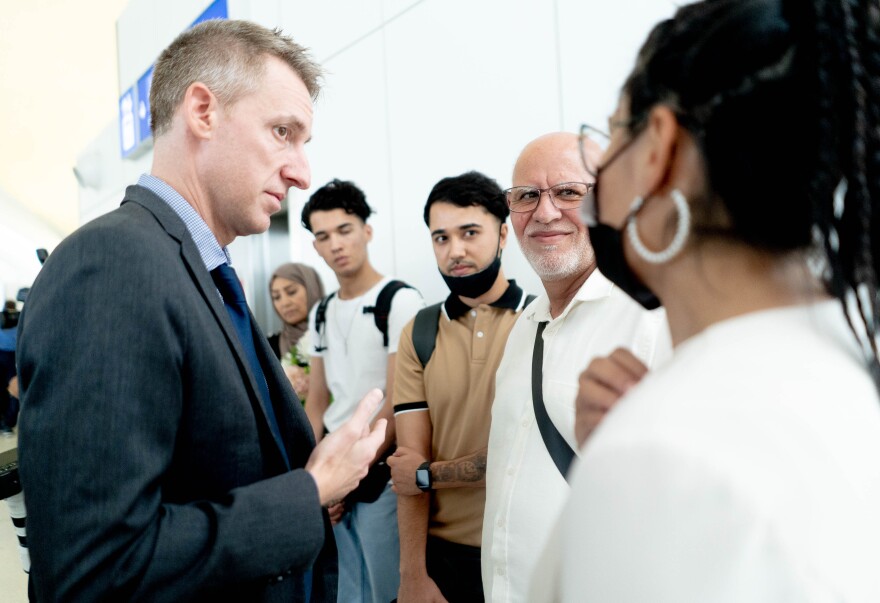The International Institute of St. Louis is preparing to resettle about 300 Afghan refugees who will arrive from Albania over the next few months.
For more than a year, the Afghan families have been waiting in Albania, a small country on the Balkan Peninsula, for the U.S. State Department to process their Special Immigrant Visas or refugee resettlement papers, said Arrey Obenson, president of the International Institute.
The families fled Afghanistan in 2021 after Taliban fighters seized control of the country.
The institute has helped resettle about 700 Afghans since last year. In the past few months, six Afghans arrived in St. Louis from Albania.
The institute had difficulty finding enough housing for Afghan refugees who came in last year, because federal officials did not give resettlement agencies enough time to prepare, Obenson said.
“When you have 150 people arriving in one week, there's just not enough housing capacity. There's just not enough planning,” he said. “Now we have the benefit of time and with the benefit of time, we are more prepared.”
The institute has created an inventory of apartments so that when more Afghan refugees or immigrants arrive they would not have to be temporarily housed in hotel rooms. Many Afghan families who arrived last year were placed in hotels until housing became available. The institute also created the Afghan Community Support Program, a housing fund of about $500,000 to cover the rent of Afghan families for at least three months.
Obenson said people who come from war-torn countries do not have a credit history or a job and cannot afford housing. He said the fund can help alleviate the pressure of finding a home or job immediately.
The institute also is collaborating with other nonprofit organizations to pair arriving Afghans with St. Louis families who can provide help with basic needs, including grocery shopping, helping them understand the transportation system or integrating children into the school system.
That kind of support is attracting more Afghan refugees to the St. Louis region. In the past year, the institute has seen a 25% increase in Afghan immigrants and refugees moving to St. Louis from other cities.
Sulaiman Sulaimankhil moved to St. Louis from Trenton, New Jersey, in January. He fled Afghanistan in August 2021 with family members and co-workers. Sulaimankhil was a contractor with the U.S. government and was afraid the new regime would harm him.

After leaving his home country, he stayed in Doha, Qatar, for two weeks for processing and then the U.S. government flew him to New Jersey. He lived in Trenton for six months until he and his family decided to move to St. Louis.
“I chose St. Louis … because the people that I know were awesome, and I heard a lot about the Midwestern culture,” Sulaimankhil said.
Since he arrived in St. Louis, Sulaiman said, the institute and the community have welcomed him with open arms. He is enjoying the city’s parks, sporting events and food and his new friends.
He hopes the region will help support the new Afghan arrivals in every way.
“I am sure that the refugees that are coming from Albania, they have been there for a very long time. I'm sure they're stressed,” Sulaimankhil said.





